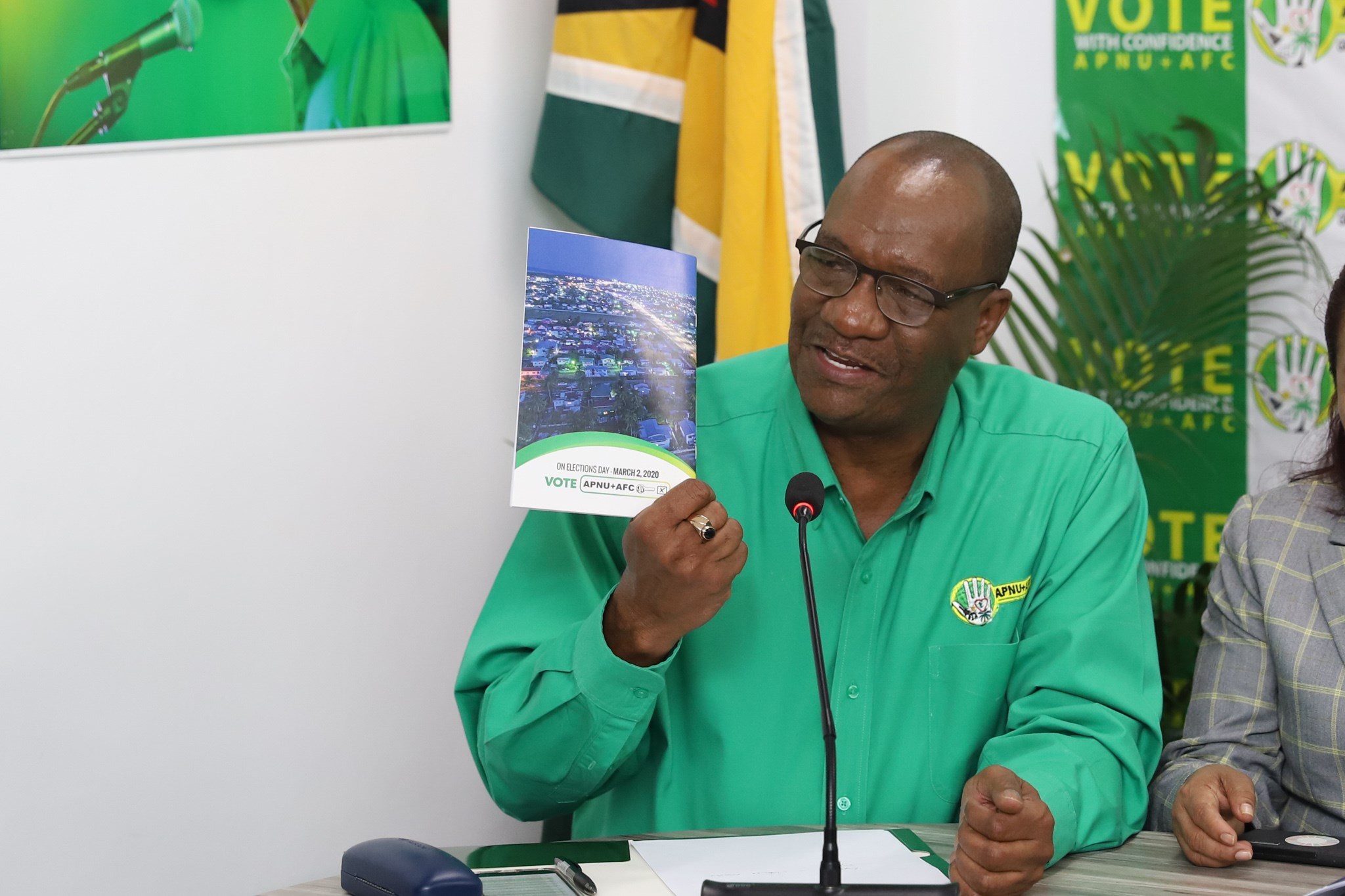
To address high energy costs –a major issue for decades –the APNU+AFC Coalition is looking to establish a Natural Gas Terminal if it is re-elected to office on March 2.
In its 2020 campaign manifesto unveiled on Friday, the coalition government outlined a programme to ensure affordable, reliable and sustainable energy over not just the next five years, but the next decade.
“…we’re going to reduce the price of electricity for Guyanese people, how we’re going to being down the commercial cost for companies investing in this country… blackouts will be a thing of the past,” Elections Campaign Manager, Joseph Harmon said.
It plans to establish a Natural Gas Terminal which it said will also create opportunities for employment.
“We are prepared to reap the benefits of being an oil-producing nation. We have initiated programmes and policies to deliver a developed and diversified energy sector. These initiatives took into consideration the need to ensure energy security,” the APNU+AFC document states.
Eight billion barrels of oil recoverable resources have been discovered in the Stabroek Block offshore Guyana.
At his last press conference, Director of Energy Dr. Mark Bynoe said that about 2 billion of those 8 billion barrels are gas, with a conversion factor of about 5.8 which is roughly 340 billion cubic metres of gas.
Guyana began oil production on December 20, 2019 and the Department of Energy has projected that gas will be able to land on-shore by 2023.
ExxonMobil will be using some of the Natural Gas to re-inject into its wells during production.
Significant quantities will not be available until 2035 but Bynoe had stated that operators offshore can make enough gas available for domestic use from which the government is looking to produce 188 megawatts of power.
The Energy Department has contracted a Petroleum Development Management Specialist and a Natural Gas Specialist to augment the entity’s technical staff complement.
The use of Natural Gas will complement other plans to move to a 100% renewable energy economy by 2030.
The Coalition has pledged to ensure that there are adequate, accessible and affordable energy supplies during the transition period.
To achieve the renewable energy goal, the parties plan to:
- Establish solar farms in all hinterland ‘capital towns’ and, also, mini solar farms in indigenous villages;
- Provide reliable and affordable electricity from associated gas from the Liza-1 project;
- Provide hydro-electric power in Lethem and Mahdia; and,
- Provide resources for renewable energy sources such as solar farms, waste-toenergy plants, biomass and wind
Chairperson of the Caribbean Community and Prime Minister of Barbados, Mia Mottley recently said it is important to reduce energy cost in the region as she noted that energy cost ranges from US¢20 to US¢37 per kilowatt-hour in CARICOM states.












